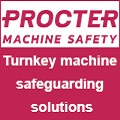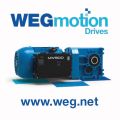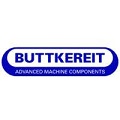
Posted to News on 6th May 2016, 11:38
Reliable torque-limiting clutches for the food industry
Torque-limiting clutches ensure the reliable protection of people and materials in machines and systems. So that the clutch optimally matches the respective application, mayr power transmission has developed a wide spectrum of torque-limiting clutches. For areas of application such as the food industry, where wet conditions and cleaning fluids are part of everyday ambient conditions, mayr provides corrosion-resistant clutches made from rustproof materials.
Whether fruit flavours or ice cream with chocolate frosting - many people enjoy the refreshing taste of an ice lolly in the summer. More than 90 years ago, a patent was already registered in the United States for this classic favourite. At that time, the ice cream was still laboriously placed into moulds by hand and provided with a stick. Today, the production is executed using modern machines and systems - up to 30,000 ice lollies are produced per hour, depending on the product and machine dimensions.
For example, for the production of vanilla ice cream with chocolate frosting, first the ice cream mass is pressed into a pipe with an oval aperture, and then, the quantity for exactly one ice cream is extruded out of the pipe. At this moment, a further machine injects a stick into the ice cream mass. Subsequently, a blade cuts the individual ice cream from the ice cream strand, and this section of ice cream falls onto a conveyor belt and is transported on to the next production step. It is important for the quality of the ice cream that the delicate wooden sticks do not splinter on their way through the machine, and therefore one ice cream manufacturer uses torque limiting clutches in their machines with the ROBA slip hubs from mayr power transmission, which reliably prevent damage to the sticks.
When the machine picks up the wooden sticks from the container below in order to transport these individually to the ice cream, these sticks sometimes jam. In order to protect the delicate conveyor chain against overload and breakage, a ROBA slip hub is attached to the shaft of the pick-up wheel, which is driven via a toothed belt. A second ROBA slip hub sits directly on the shaft of the separation unit in order to prevent the wooden sticks splintering when they jam up. The ROBA slip hubs are load-holding torque limiting clutches, which transmit the torque by means of frictional locking. This means that the clutches transmit the torque via friction linings which are pre-tensioned using cup springs. The stronger the cup springs are compressed by means of an adjustment nut, the higher the transmitted torque. In case of overload, for example if an ice cream stick jams, the flange with the drive element slips through against the resistance of the friction linings. Therefore the clutch does not interrupt the torque transmission, but instead holds the load with the set torque. This is important so that the vertically or diagonally-moved wooden stick cannot drop uncontrollably. With the ROBA slip hubs, the torque can be steplessly and precisely adjusted to the respective operating conditions by means of a scale on the adjustment nut. They are robust and, thanks to their enclosed design, are protected against soiling through cleaning agents and other liquids. Depending on the requirements, the ROBA slip hubs can be produced in corrosion-proof design.
Safety for people and machines
The ice cream cone is older than ice lollies, and the first ice cream cones were being baked (also in the USA) already at the end of the 19 century. Their production today is also fully automated and concerns large quantities. For this purpose, the wafer sheets are first baked in ovens and moulded into their final shape whilst still warm. A winding head rolls the wafers into a cone shape, and then a rotating pick-up head picks the wafers up and positions them on a conveyor belt. Jamming can occur during the transfer of the wafers onto the pick-up head, and therefore one automatic baking machine manufacturer employs EAS Compact torque limiting clutches with overload design in the drive of the pick-up head. This protects the machine against damage and the operator against injuries.
The EAS Compact torque limiting clutches belong to the family of load disconnecting clutches and transmit the torque using positive locking. In this process, the torque is generated via the pre-tensioning of cup springs. Load disconnecting torque limiting clutches disconnect the input and output in case of overload or collision, i.e. they interrupt the torque or the force transmission. For this purpose, overload designs disconnect completely and virtually residual torque-free. They remain in this disconnected position until they are re-engaged manually or using a device. Overload torque limiting clutches are therefore particularly suitable for quick-running drives or drives with large mass moments of inertia. The stored rotation energy can slow down freely in case of a collision.
Precise and backlash-free
Engaging clutches also disconnect the input and output in case of an overload. In contrast to the overload versions, however, they are immediately ready for operation again after rectification of the fault. Ratchetting clutches automatically engage again every 15 degrees, and synchronous clutches after 360 degrees - which is why the latter is often the first choice for machines with rotary tables. For example, the EAS Compact synchronous clutches are used in a filling line for cream cheese. They are positioned in the respective drive in the centre of the rotary table, which rotates the table top to fill the cream cheese tubs. In case of overload, for example if too many empty tubs are provided and the table jams up, the torque limiting clutch disengages and automatically re-engages after one complete revolution at exactly the same position.
The EAS torque limiting clutches by mayr power transmission can be accurately adjusted and operate with high repeat accuracy. In malfunction-free operation, they transmit the torque backlash-free and therefore ensure a long service life and minimal wear. For application areas such as the food industry, where wet conditions and cleaning fluids are part of everyday ambient conditions, mayr provides special designs and constructions, for example made from rustproof stainless steel, with seals or housing.
Torque-limiting clutches provide effective protection for sensitive machine elements or products, but in order to protect against overload damage, the torque limiting clutch must optimally match the respective application. mayr power transmission provides a wide, sophisticated standard product range. But the company also caters for the increasing demand for new application-optimised products with high performance densities and very high torques and speeds, developing tailor-made systems for protection against overload. For this purpose, mayr power transmission can call on over 60 years of experience, extensive expertise in development and design, and state of the art testing equipment.
For more information about torque-limiting clutches please visit www.mayr.com.
10/11 Valley Road Business Park
Valley Road
BD21 4LZ
UNITED KINGDOM
+44 (0)1535 663900






























